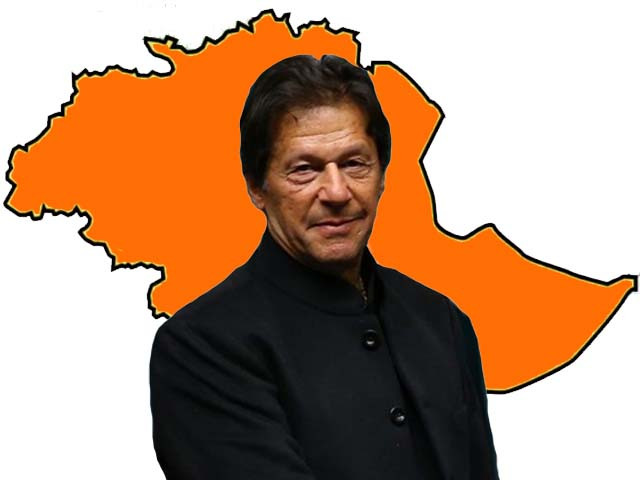This is the second article in a two part series. Read part one here.
~
Private sector development
Economic development in Gilgit-Baltistan (G-B) has also been a casualty of G-B’s statelessness. According to the World Bank, G-B’s vague legal status and fragile governance structure discourages investors from investing in the region. Giving G-B provincial status will remove these roadblocks and help spur economic growth in the region, especially attracting private sector investment which has been highlighted by the G-B government to the national government and other international development partners like the World Bank as one of the major development issues of G-B. Issues of economic integration, regional linkages and trade that have kept G-B as, arguably, the least industrially developed part of Pakistan. Tourism and mineral industries can easily prove to be great sources of indigenous drivers for jobs and growth. Once these areas are established, they can provide their own revenues for public investment in infrastructure and hydropower generation to power more development projects. G-B already has a highly educated human resource that can provide the social and economic basis of further economic growth.
Securing funding for the Diamer-Bhasha Dam
It has been 20 years since the first groundbreaking ceremony of the Diamer-Bhasha Dam and is still suffering from many issues including funding problems. International development partners often point to the disputed status of G-B to refuse funding. Both the Asian Development Bank, which the Pakistani government had decided to approach first, and the World Bank backed out of funding the construction of the dam expected to cost a whopping $14 billion dollars. Upgrading G-B to the status of a provisional province removes those roadblocks. The dam’s generation of 4500MW of power is critical for meeting Pakistan’s chronic power shortages, helping Pakistan’s irrigation system, and also for managing the ever-increasing rate of flooding in the lowlands of Pakistan.
Joint development of G-B and Xinjiang
Legalising Pakistan’s control over G-B also raises the prospects of an important suggestion floated by the Chinese ambassador to Pakistan: joint development of the GB-Xinjiang region as sister provinces, and to turn them into a single economic and strategic theatre at the BRI’s point of origin. Such a venture will not just give an international flair to BRI’s starting point, but will also bring innumerable economic, strategic, and cultural benefits to Pakistan via Central Asia, West Asia and Eastern Europe.
The Pakistani government, media organisations, and the people of G-B need to highlight and push for this joint venture as it will plug Pakistan into an economic, infrastructure, strategic and cultural matrix that will further the country’s interests. It is important here to mention that G-B is also connected overland to Central Asia, separated only by a strip of Afghan territory – Wakhan, a former Pakistani territory ceded by British India to Afghanistan to create a buffer zone between British India and the Soviet Union.
The shape of the ‘provisional’ province
While the benefits of making G-B a province are clear and straightforward, the shape that the province will take is still unclear. In all likelihood it will be closer to the one recommended by the high-powered committee led by Sartaj Aziz in 2018. But before that the government will have to withdraw the review petition in the Supreme Court on its judgment of January 17, 2019 regarding the governance law for G-B.
The Sartaj Aziz led committee recommended a provisional province by amending Article 51 and 59 of the Constitution of Pakistan, curiously leaving out the territory-defining Article 1 of the constitution. It also recommended three general seats in the National Assembly, one for each of the three divisions of G-B, namely Gilgit, Baltistan, and the Diamer Divisions. An additional fourth seat for women was to be added by amending Article 51(4). Three special Senate seats were also to be created by amending article 59. The reason quoted for not including G-B in Article 1 was to protect Pakistan’s stance on the Kashmir dispute at the UN.
All legislative powers enjoyed by the rest of the provinces can be extended to the G-B Assembly by amending Article 142 and the Fourth Schedule. Membership to constitutional bodies like the National Economic Council, the National Finance Commission and other bodies was to be by “special invite”, meaning not full membership. The recommendations fall short of the aspirations of G-B’s people. First, the number of seats in the National Assembly must at least be five, and the number of Senate members should be equal to all the other provinces. The membership to constitutional bodies must be constitutionally mandatory, especially the two most important of those, the National Economic Council and the National Finance Commission that decide development projects and division of resources between the federating units. Keeping G-B out of them will make any elevation of status toothless because it will be denied its share of financial and development resources.
Devolving judicial powers to G-B is a particularly urgent need. One of the travesties of justice has been the total absence of an independent system of justice in G-B. The people of G-B have been denied access to the highest court of law in the country, the Supreme Court of Pakistan. Decisions of life and death, and imprisonment have been decided by a weak judiciary vulnerable to local executive authority. Establishment of the country’s fifth High Court must accompany the change of the legal status of G-B. It must also extend the Supreme Court’s jurisdiction to the entire territory and citizens of G-B so that they have the same access to justice that their compatriots in the other provinces of the country have.
On all accounts, the move is, if played at all, a political masterstroke for the purposes of strategy, security, and economy. It is time to reward the patience and loyalty of the people of Gilgit-Baltistan.



COMMENTS
Comments are moderated and generally will be posted if they are on-topic and not abusive.
For more information, please see our Comments FAQ